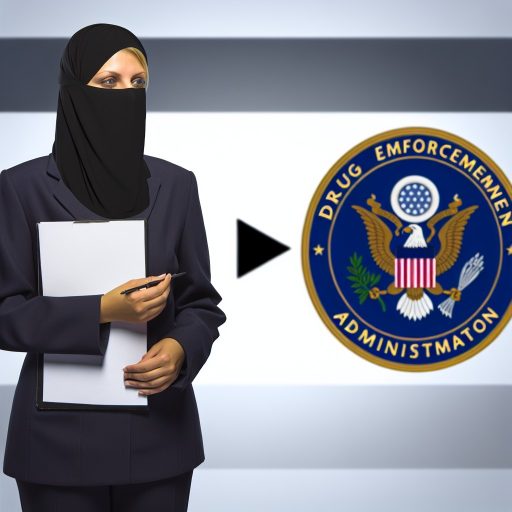Introduction
Understanding the critical role that campus security officers play in ensuring the safety and security of students.
They protect faculty and staff as well.
College campuses continue to face various security threats and challenges.
The demand for well-trained and highly competent security officers has increased significantly.
Training Requirements for Campus Security Officers
Training requirements for campus security officers are crucial in equipping them with necessary skills and knowledge.
These requirements vary depending on the institution’s specific needs.
However, some common elements should be included in most training programs.
Basic Security Training
Security officers should undergo basic security training.
This training includes understanding security procedures and emergency response protocols.
Officers also learn how to use security equipment such as CCTV cameras and alarm systems.
Such training prepares officers to identify and respond effectively to potential threats.
Conflict Resolution and Communication Skills
Campus security officers must possess excellent communication skills.
Additionally, they need strong conflict resolution abilities.
Training in these areas helps officers de-escalate tense situations.
They also learn to resolve conflicts peacefully and communicate clearly with campus stakeholders.
Legal and Ethical Considerations
Security officers should receive training on legal considerations relevant to their role.
This includes understanding laws and regulations governing security operations.
They also learn about the rights of individuals on campus.
Ethical responsibilities include upholding safety while respecting individual rights.
Specialized Training for Campus Security Officers
Security officers may require specialized training based on campus needs.
Transform Your Career Today
Unlock a personalized career strategy that drives real results. Get tailored advice and a roadmap designed just for you.
Start NowExamples include crowd control and campus event security.
They may also train to handle specific types of security threats.
This training ensures officers are prepared for any situation on campus.
Providing comprehensive training programs equips security officers effectively.
Institutions can enhance campus safety and security by investing in officer training.
Overview of Training Requirements
- Campus security officers are required to undergo rigorous training to ensure they are well-prepared for their roles.
- Training programs for campus security officers are designed to cover a wide range of topics to equip them with the necessary skills.
Basic Training Requirements
- Campus security officers must complete a training program approved by the state or the institution.
- Basic training typically includes courses on conflict resolution, emergency response, and patrol procedures.
- Training sessions may also cover topics such as legal issues, ethical standards, and report writing.
- Physical training is often included to ensure officers are fit to handle demanding situations.
- Officers may also receive specialized training depending on the specific needs of the institution.
Key Skills and Knowledge Needed
- Campus security officers must possess excellent communication skills to interact effectively with students, faculty, and staff.
- Problem-solving skills are crucial for officers to handle various situations that may arise on campus.
- Officers should have a good understanding of laws and regulations relevant to campus security.
- Knowledge of emergency procedures and protocols is essential to respond quickly and effectively in crisis situations.
- Adaptability and quick thinking are important as security officers must be able to think on their feet.
- Attention to detail is critical for officers to accurately document incidents and follow proper procedures.
Legal and Regulatory Compliance
- Security officers’ training is regulated by laws and standards set by government agencies.
- For example, the Security Industry Authority (SIA) in the UK sets guidelines for training.
Importance of Compliance
- Compliance ensures that security officers have the necessary skills and knowledge to perform their duties.
- It also helps in maintaining professionalism and integrity within the security industry.
- Non-compliance can lead to legal consequences, such as fines, revocation of licenses, or even criminal charges.
Explore Further: Common Challenges Faced by TSA Officers on Duty
Hands-On Training
Importance of Hands-On Training for Security Officers
Hands-on training is crucial for campus security officers.
It allows them to practice real-world scenarios in a controlled environment.
This type of training helps officers develop practical skills essential for effectively carrying out their duties on campus.
Practical Skills Security Officers Need to Develop
- Security officers must be trained on how to use force appropriately and responsibly.
- Training helps de-escalate situations and protects themselves and others.
- Officers need to be prepared to handle emergencies like medical incidents, fires, active shooters, and natural disasters.
- Training includes drills and simulations to ensure quick and effective responses.
- Security officers must communicate effectively with students, staff, and visitors on campus.
- Communication skills include verbal de-escalation, conflict resolution, and clear radio communication.
- Officers should monitor and patrol campus property effectively.
- They must identify suspicious behavior and respond to security threats appropriately.
- Training covers the use of surveillance equipment, conducting perimeter checks, and spotting security breaches.
- Security officers need to document incidents accurately and write detailed reports.
- They learn proper report writing, evidence collection, and chain of custody protocols.
- Officers must understand relevant laws and regulations related to campus security.
- This includes knowledge of trespassing laws, property rights, search and seizure, and use of force laws.
- Training includes legal updates and case studies to keep officers current.
Hands-on training plays a vital role in preparing campus security officers for diverse challenges.
Providing officers with opportunities to practice and hone skills in realistic settings improves readiness.
Such training helps ensure the campus community stays safe and secure.
Discover More: Benefits of a Counterterrorism Specialist Career
Conflict Resolution Training
Effective conflict resolution skills are essential for campus security officers.
These skills help maintain a safe and secure environment.
Here are some reasons why conflict resolution training is crucial.
- Prevention of escalations: Security officers can de-escalate situations before they turn violent.
- Ensuring the safety of students and staff: Conflict resolution skills help in diffusing tensions and resolving disputes peacefully.
- Building positive relationships: By resolving conflicts effectively, security officers can build trust and rapport with the campus community.
Techniques and strategies for effectively resolving conflicts on campus include the following.
- Active listening: Security officers should listen attentively to all parties involved in the conflict to understand their perspectives.
- Remaining calm: It is essential for officers to stay calm and composed, even in high-stress situations.
- Empathy: Showing empathy towards individuals involved in the conflict can help in finding common ground and resolving issues.
- Mediation: Security officers can act as mediators to facilitate communication and negotiation between conflicting parties.
- Conflict resolution training: Regular training sessions on conflict resolution techniques can enhance the skills of security officers.
By equipping campus security officers with adequate conflict resolution training, educational institutions can ensure a safer campus environment.
This training promotes a more harmonious campus atmosphere for everyone.
See Related Content: CBP Officer Role in Combating Illegal Immigration
Transform Your Career Today
Unlock a personalized career strategy that drives real results. Get tailored advice and a roadmap designed just for you.
Start Now
Emergency Response Training
Security officers play a crucial role in ensuring the safety and security of individuals on campus.
They have special importance during emergency situations.
Role of Security Officers in Emergency Situations
Security officers are often the first responders on the scene during emergencies.
They play a critical role in assessing the situation and implementing the appropriate response plan.
Additionally, they provide assistance to those who need help.
Specific Training Requirements for Responding to Emergencies
- Security officers should be trained in basic first aid and CPR techniques to offer immediate aid to injured or distressed individuals.
- They should receive training on effective communication during emergencies, including two-way radios, emergency codes, and alarm systems.
- Given the rise in active shooter incidents, they should undergo training on responding to such situations, including evacuation procedures and cooperating with law enforcement.
- Security officers need training on the Incident Command System framework to ensure coordination and communication among all responders.
- They should learn de-escalation techniques to prevent conflicts from turning violent, especially in emotionally charged situations.
- Training on hazardous materials response is important for handling spills or exposures safely, including containment and evacuation protocols.
- They need to be prepared for managing large crowds during emergencies like natural disasters or fires and implement proper evacuation procedures.
- Security officers should receive mental health first aid training to recognize and assist persons experiencing mental health crises during emergencies.
Emergency response training is essential for security officers to handle risks effectively during crises.
By meeting specific training requirements, they can better protect the campus community.
This training helps ensure a safe environment for everyone on campus.
See Related Content: Drug Trends and How DEA Agents Address Them
Continued Education and Professional Development
Ongoing education and training remain essential for security officers.
Providing resources supports officers in their professional development.
Importance of Ongoing Education
Continued education helps campus security officers stay updated with security protocols.
Security officers must receive regular training to respond effectively to emergencies.
Investing in education enhances skills and improves campus safety overall.
Resources for Professional Development
Officers can access various resources to stay current with security management best practices.
Attending conferences and workshops allows learning from experts and networking with peers.
Online courses and webinars offer convenient ways to expand knowledge without leaving campus.
Joining professional organizations provides certifications, training, and career advancement opportunities.
Enhancing Campus Security Through Education
Ongoing education enables officers to perform duties effectively and protect campus communities.
Remaining updated with security trends helps prevent breaches and improve emergency response.
Transform Your Career Today
Unlock a personalized career strategy that drives real results. Get tailored advice and a roadmap designed just for you.
Start NowSecurity departments must prioritize and provide resources for continuous professional development.
Importance of Training for Campus Security Officers
Training requirements for campus security officers ensure a safe and secure environment.
Proper training equips officers to manage various situations effectively.
Essential Training Areas for Campus Safety
Conflict resolution training helps officers handle disputes peacefully.
Emergency response training prepares officers for urgent situations.
De-escalation techniques reduce the risk of violence on campus.
Ongoing professional development updates officers on the latest protocols.
Enhancing Campus Security Through Training Investments
Training requirements are vital for protecting students, faculty, and staff.
Comprehensive training improves the overall security infrastructure of campuses.
Officers can respond promptly to potential threats or emergencies.
Continued support and resources should focus on training initiatives.
Additional Resources
EDUCATION CODE CHAPTER 37. DISCIPLINE; LAW AND ORDER
[E-Books for Sale]
The Big Book of 500 High-Paying Jobs in America: Unlock Your Earning Potential
$19.99 • 500 High-Paying Jobs • 330 pages
Explore 500 high-paying jobs in America and learn how to boost your career, earn more, and achieve success!
See All 500 High-Paying Jobs of this E-Book
1001 Professions Without a Degree: High-Paying American Jobs You Can Start Now
$19.99 • 1001 Professions Without a Degree • 174 pages
Discover 1001 high-paying jobs without a degree! Unlock career tips, skills, and success strategies for just $19.99!




